Posted May 9th, 2023 at 3:17 pm by Philip Kendall
Back in 2014, we released a series of videos about how to select bottom retainers. Bottom retainers hold the bottom seal inserts that keep dust, leaves and insects out of your garage. They come in a variety of shapes and sizes, depending on your needs and the shape of the garage door. We hope this will help you in choosing which retainer to use.
How to Select Your Retainer
There are three or four general criteria to use when selecting bottom retainers.
- Size. If the retainer does not fit your door, then it is not the right one to use. Some retainers, such as tongue and groove, only fit in certain types of doors. On the other hand, the only size consideration for flat retainers is that the width of the retainer match the width of the door.
- Price. Aluminum retainers tend to cost more than plastic retainers. In addition, when buying L-shape and C-channel retainers, it is better to select a retainer height that is as short as possible.
- Durability. Normally, aluminum retainers last twice as long as plastic retainers. However, when the retainer will be exposed to moisture, salt, or corrosive chemicals, it is usually better to choose a plastic retainer.
- The condition of your door. C-channel retainers are able to cover up problems like rot, delamination, and rust. If the bottom of your door is in poor condition, buying a C-channel retainer could help protect the door and make it last longer.
The Five Types of Bottom Retainer
There are five types of bottom retainers: Flat, Tongue and Groove, L-shaped, Single Channel, and C-channel. We explain how to select bottom seal retainers from the five different types in more detail below. To view our full selection of bottom retainers, go to our Bottom Retainers page or our Garage Door Seals page.
Flat Retainers
Flat retainers are simple in design and easy to install. These are the least expensive option when the bottom of your door is flat and parallel to the floor. They come in both aluminum and plastic.
DDM Garage Doors carries several types of flat retainers, which are measured by their width.
- 1 1/4″ aluminum retainers
- 1 5/8″ aluminum retainers (now listed as 1 3/4″ aluminum retainers)
- 1 5/8″ plastic retainers
There are three criteria to consider when choosing which type of flat retainer to use.
- Door thickness. The 1 1/4-inch retainers are most commonly used for residential wood doors. However, they will also work on the bottoms of some thinner residential steel doors. The 1 3/4-inch retainers are generally for thicker commercial and industrial wood doors. However, these can also be used on some two-inch-thick residential, commercial, and industrial steel doors. The 1 3/4-inch retainers are also the best product for thicker wood carriage house doors.
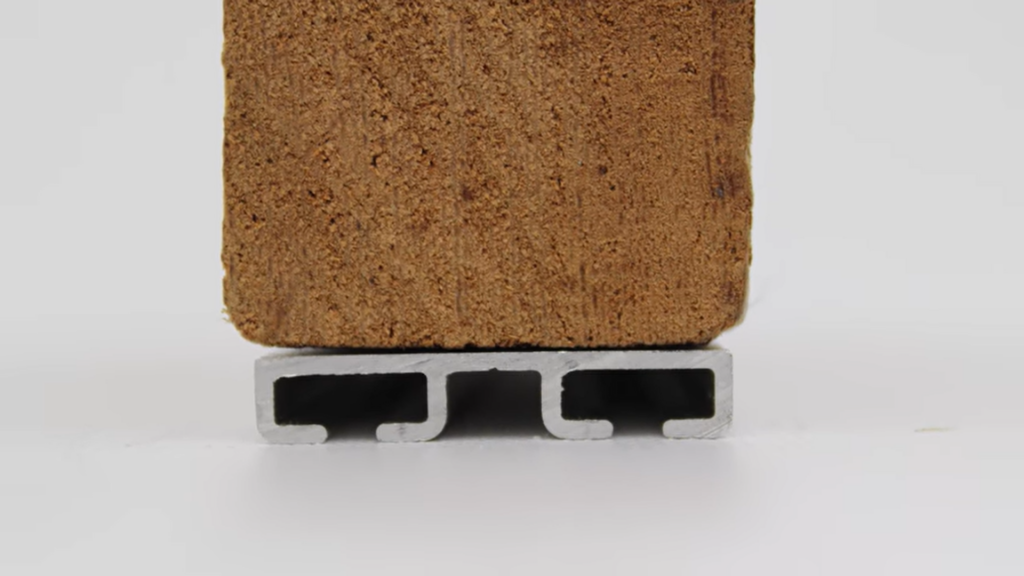
- Price. Aluminum retainers cost more than the plastic retainers.
- Durability. Aluminum retainers normally last longer. On most residential doors, aluminum retainers will last as long as the rest of the door – twenty years or longer. Plastic retainers, on the other hand, can deteriorate in ten years or less. However, if you live in an area that is high in moisture or salt content, the aluminum can corrode, often making plastic a better choice.
Tongue & Groove Retainers
Tongue and groove retainers are shaped to fit the underside of steel doors. These are the best low-profile option for steel doors. These come only in aluminum.
We carry two types of tongue and groove retainers: standard tongue and groove for 2-inch-thick doors, and tongue and groove retainers for Clopay doors. These go on the Clopay 4050 and 4300, as well as Clopay 4310 and other premium sandwich doors.
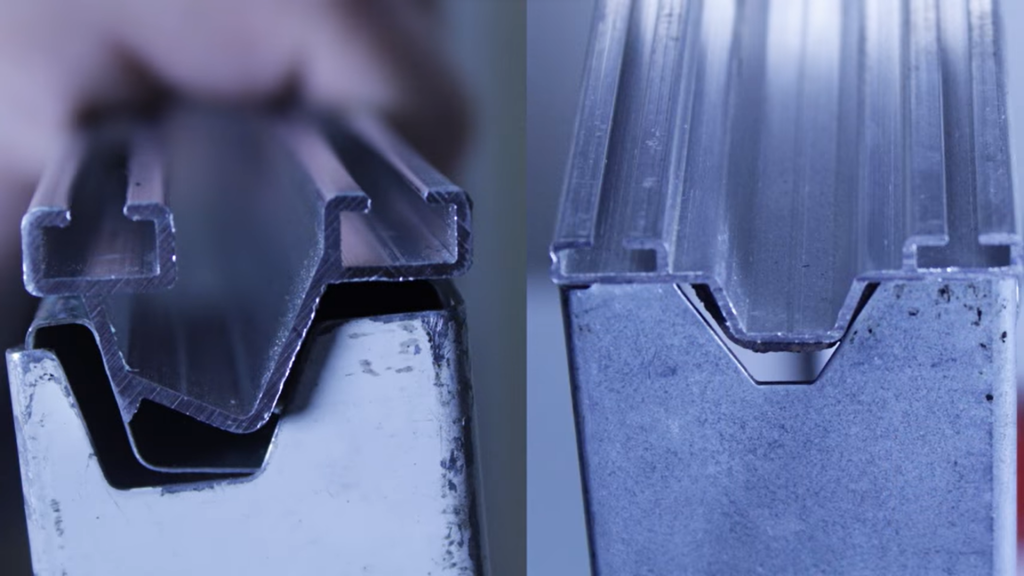
Since there are only two types of tongue and groove retainers, the only criterion for selecting the retainer is whether it fits the door. If you have a Clopay door that uses a tongue-and-groove retainer, you’ll need to buy the original equipment manufacturer (OEM) product. For all other 2-inch-thick steel doors with tongue and groove rabbets, the standard 2-inch retainer will work.
L-Shaped Retainers
L-shaped retainers offer more structural support than flat or tongue-in-groove retainers. These retainers come in both aluminum and plastic.
DDM Garage Doors carries several types of L-shaped retainers.
- 1 3/8″ x 1½” aluminum retainer
- 1 3/8″ x 1 3/8″ plastic retainer
- 1 5/8″ x 1¼” aluminum retainer
- 1¾” x 1¾” aluminum retainer
- 1¾” x 1¾” plastic retainer
- 2″ x 1″ aluminum retainer
- 2″ x 2″ aluminum retainer
- 2″ x 2″ plastic retainer
The 1 3/8″ x 1½” plastic retainer and 1 3/8″ x 3″ aluminum retainer are currently not available.
Similarly to flat retainers, there are three criteria in choosing which L-shape retainer to use.
- Door Thickness. The bottom, or horizontal part of the retainer should match the bottom thickness of the door. The side, or vertical part of the retainer, should be the least you will need. For example, if a 1-inch lip is enough, get the 1-inch lip, not the 2-inch lip.
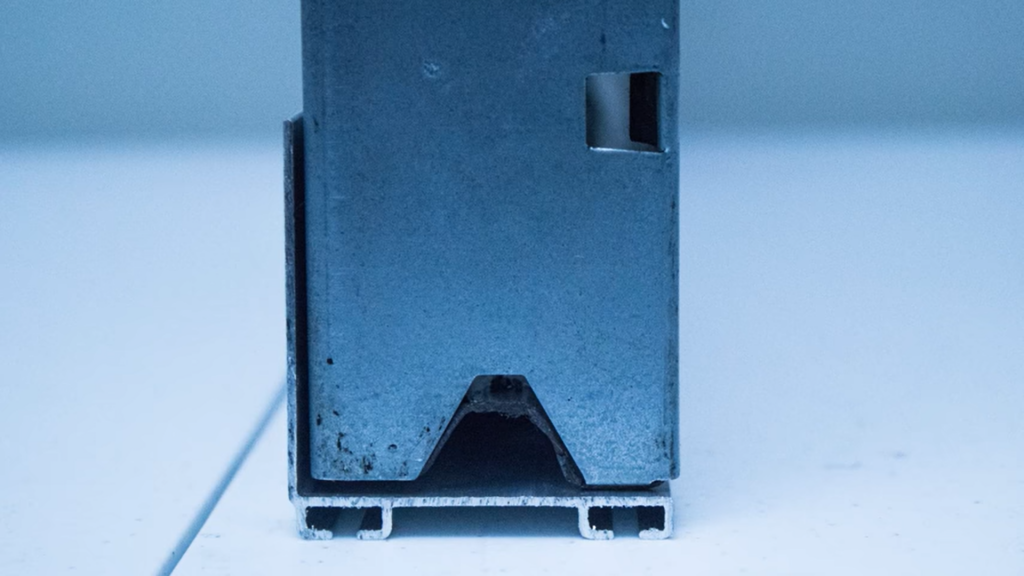
- Price. Plastic costs less than aluminum.
- Durability. This is determined by how often you use the door, as well as the material you select. Aluminum is normally more durable, lasting up to twenty years, while plastic may only last you ten years or less. However, if your door is exposed to corrosive chemicals, or if you live in an area with high moisture or salt content, the aluminum may corrode. As a result, it might be better to choose a plastic retainer.
Single-Channel Retainers
Single-channel retainers have a similar shape to L-shaped retainers, but as the name implies, these are designed with only a single channel to accommodate the bottom bulb insert. These come only in aluminum.
We have two types of single channel retainers, which makes choosing which retainer to use somewhat easier.
The first is the 1″x1½” aluminum L-shaped retainer. This normally fits on the bottom of a 1 3/8-inch door.
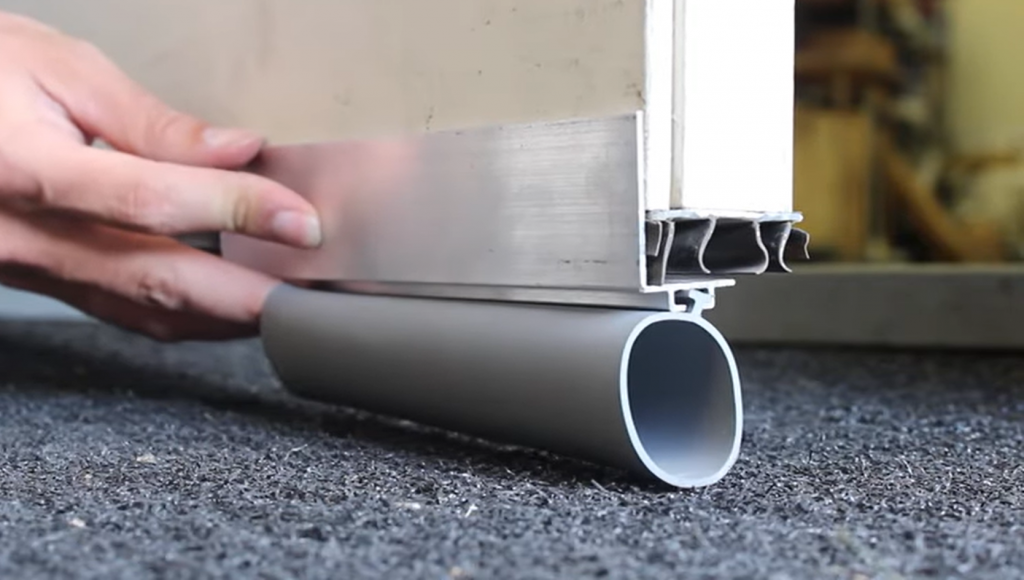
The other type of single channel retainer is for the older Clopay doors, such as the model 183. These retainers will fit other doors as well. However, because of the cost, we recommend the less expensive L-shaped retainer with double channel.
Since there are only two models of single-channel retainer, the only criteria is selecting a product that fits your door.
C-Channel Retainers
C-channel retainers provide the most structural support, coverage and seal options of all the bottom retainers.
When mounted to the bottom of the door, they can cover dented or rusted steel. They also hide rotted wood and delaminated hardboard. C-channel retainers can also be adjusted vertically to help seal gaps under the garage door. These come only in aluminum.
DDM Garage Doors carries several sizes of C-channel retainers.
- 1 3/8″ x 3″ for 1 3/8″ thick doors
- 1¾” x 3″ for 1¾” thick doors
- 2″ x 2” for 2″ thick doors
- 2″ x 3″ for 2″ thick doors
There are three main criteria for selecting C-channel retainers.
- Door Thickness. The thickness of the C-channel has to fit the thickness of the door.
- Height of the retainer. As with L-shaped retainers, use the least that you need.
- Correcting problems with the door. For example, if the bottom of your wooden garage door is rotting or delaminated on the outside, the 3-inch C-channel retainer could cover the rot and stabilize the bottom of the door. The 3-inch C-channel retainer can also be used at the bottom of steel doors that have been hit or are rusting. It can not only cover the rust, but will strengthen the bottom of the door.
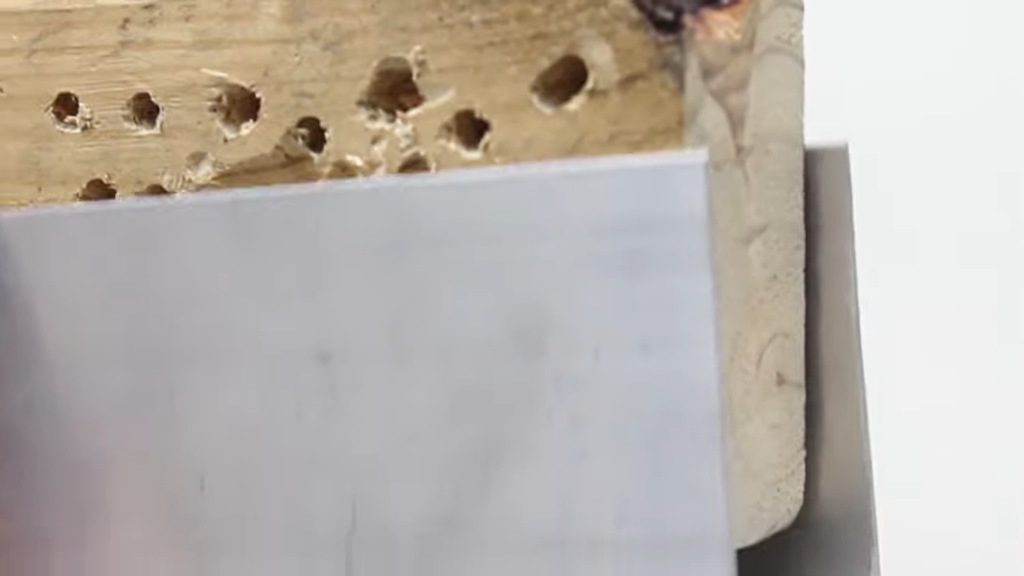
If there is a gap under the door due to an uneven floor or bottom section, the C-channel retainer can be lowered to minimize or remove the gap. However, this usually requires lowering the bottom fixtures to eliminate binding as the bottom of the door reaches the open position. Moving the bottom fixtures is dangerous, and usually better left to a professional.
Other Resources
We hope this helps you to select the right bottom retainer for your door. We also have a blog post about selecting the right garage door seal.
If you would like more instructions about weatherstripping in general, watch our video about garage door bottom seal weatherstripping. We also have blog posts about weatherstripping for steel rolling doors, and how to avoid seven common errors when buying garage door weatherstripping.
To buy garage door seals, visit our garage door seals page.
This entry was filed under Products, Technical Support. You can follow any responses to this entry through the RSS 2.0 feed. You can skip to the end and leave a response. Pinging is currently not allowed.

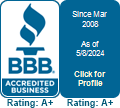
Leave a Reply